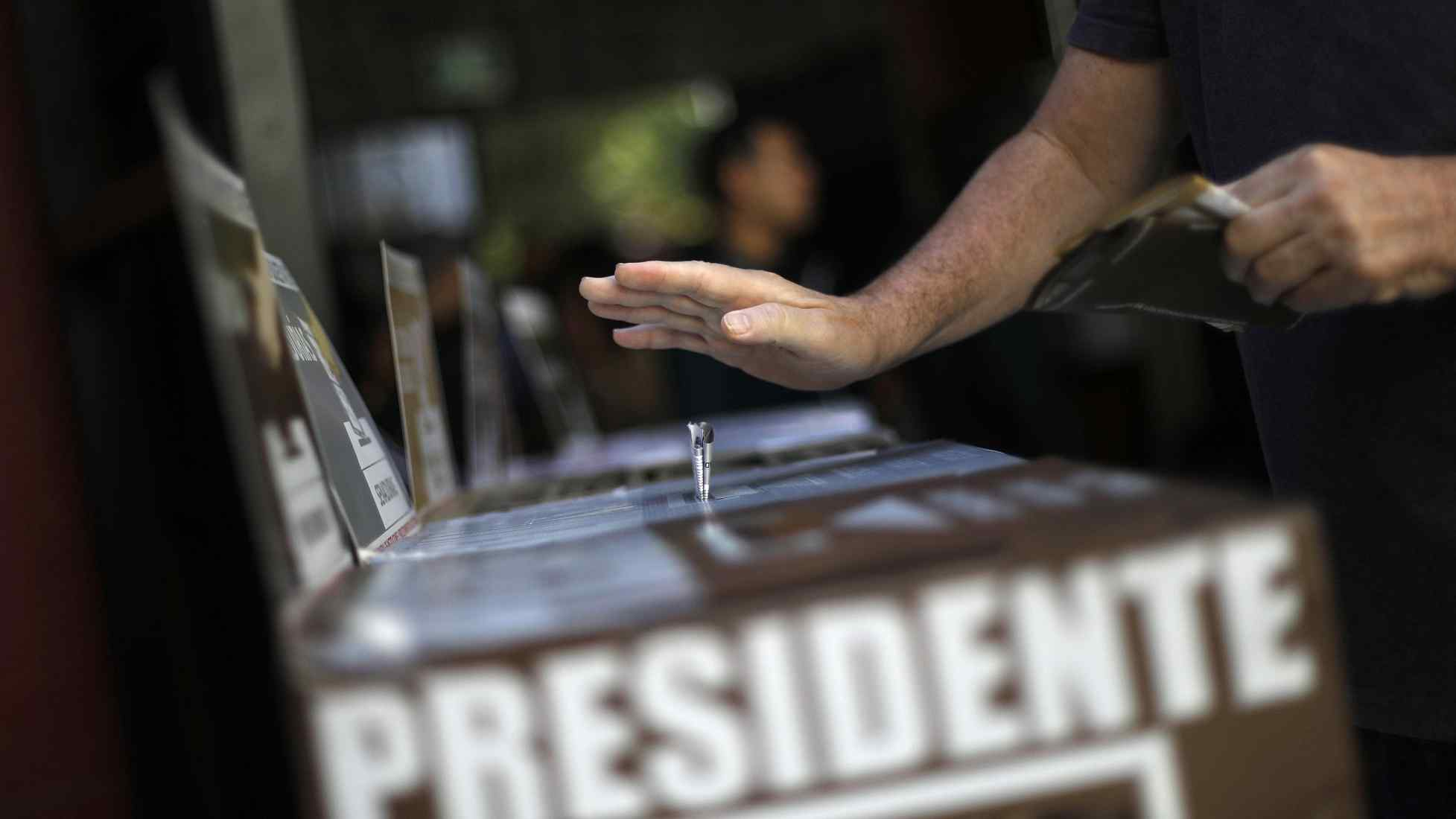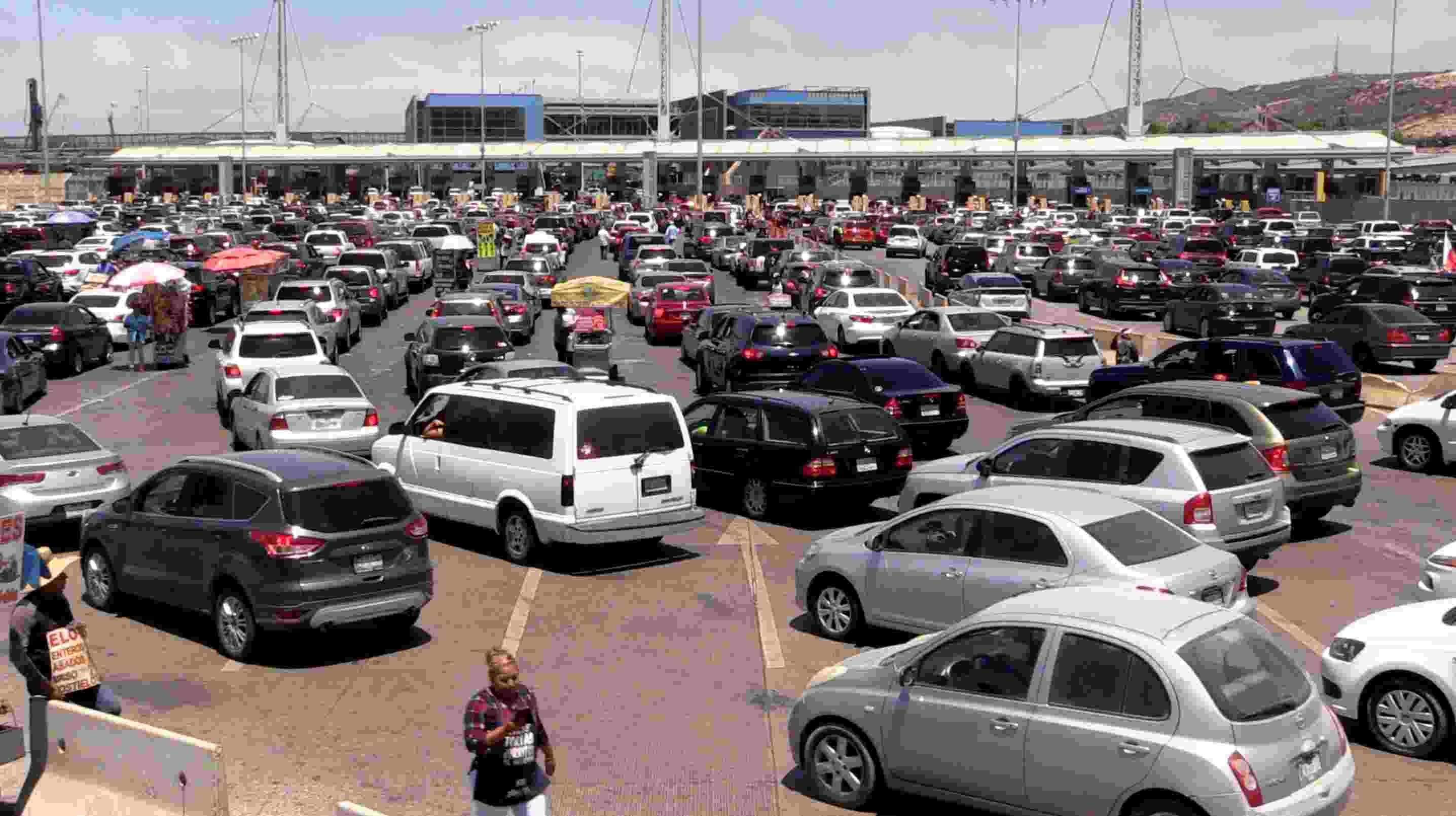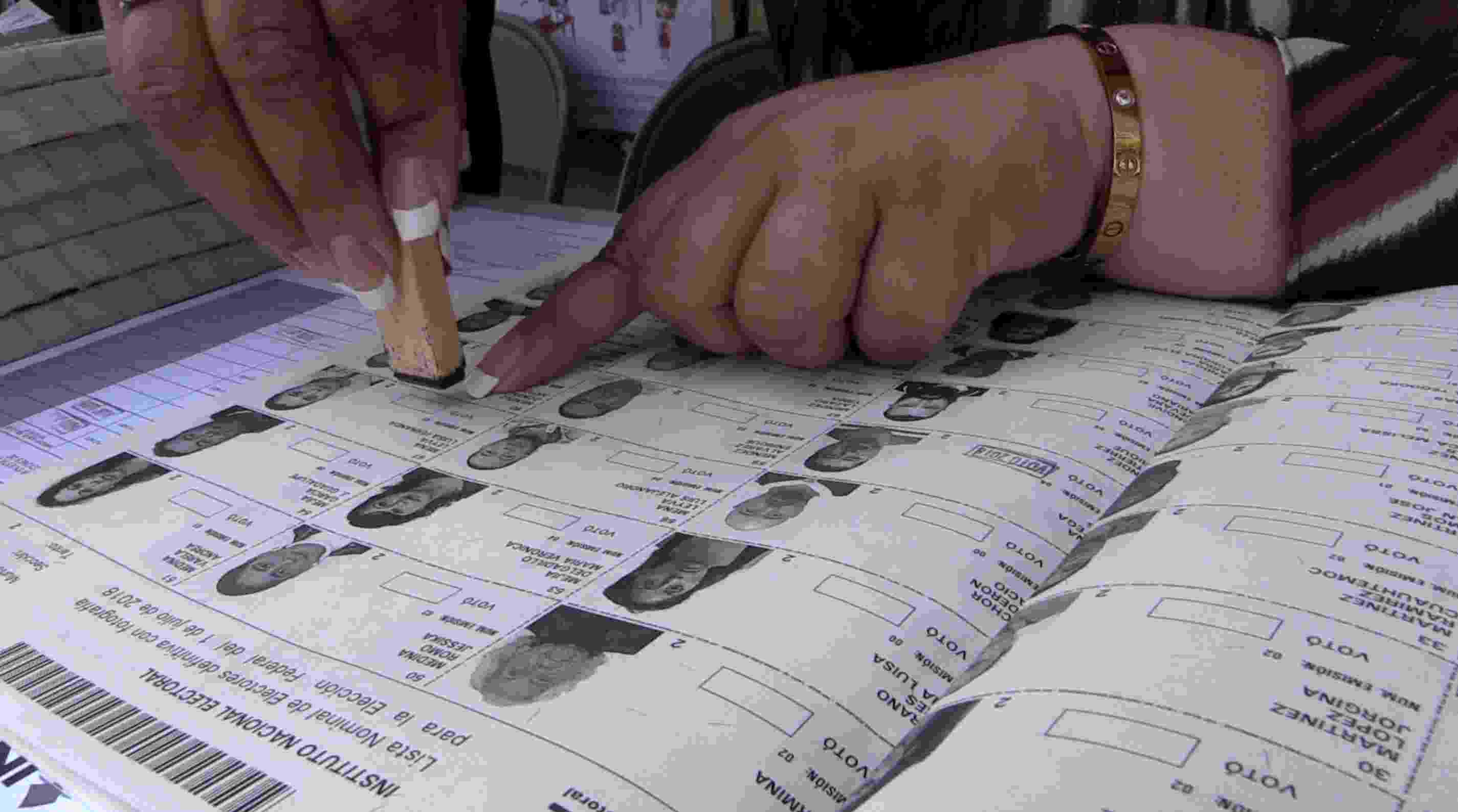Mexicans voted on Sunday in the largest general election in the country's history.
The National Electoral Institute (INE), the body responsible for organizing the presidential and legislative vote, plans to give an advanced preview of the results at 11:00 p.m. local time (4:00 GMT Monday), through its Preliminary Results Program.
Over 89 million people were eligible to cast ballots.
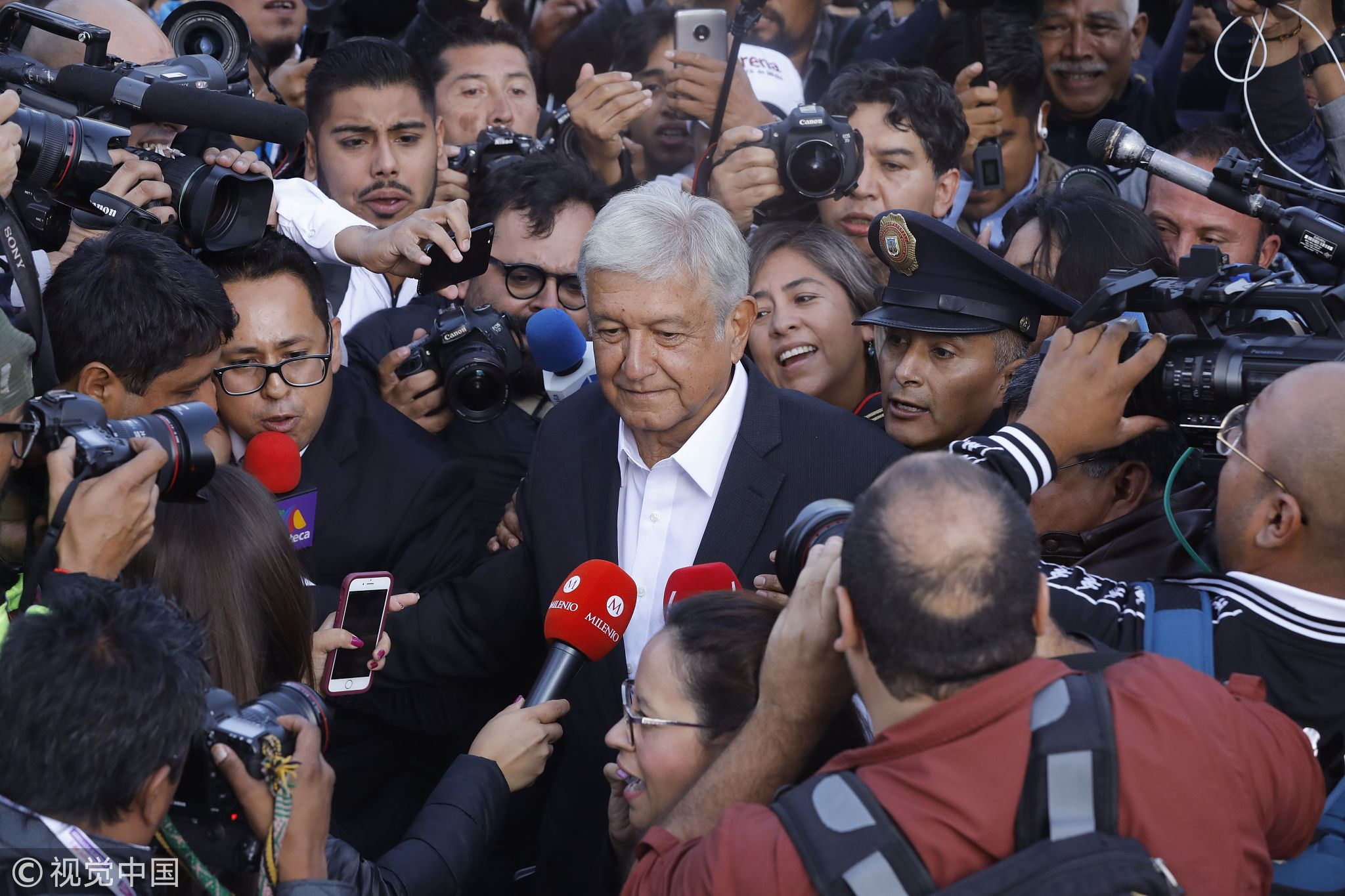
Presidential candidate Andres Manuel Lopez Obrador is surrounded by members of the media after casting his ballot at a polling station during the presidential election in Mexico City, July 1, 2018. /VCG Photo
Presidential candidate Andres Manuel Lopez Obrador is surrounded by members of the media after casting his ballot at a polling station during the presidential election in Mexico City, July 1, 2018. /VCG Photo
Speaking before voting began, the INE's president, Lorenzo Cordova, said there would be "no room for fraud" in the elections.
Cordova cited the installation of around 156,000 voting centers at which 11 million Mexicans acted as election officials. The positions were chosen by lot to avoid the possibility of fraud, explained the INE president.
Read more:
"They (the election officials) are the main guarantee of respect for the vote," he said, adding that 2.7 million representatives from participating parties will also be present at the polls.
Shortly after arriving at a polling station on Sunday morning in the south of Mexico City, Andres Manuel Lopez Obrador, the front-running presidential candidate for the coalition "Together We Will Make History," cast his vote and said that a quiet day was expected.
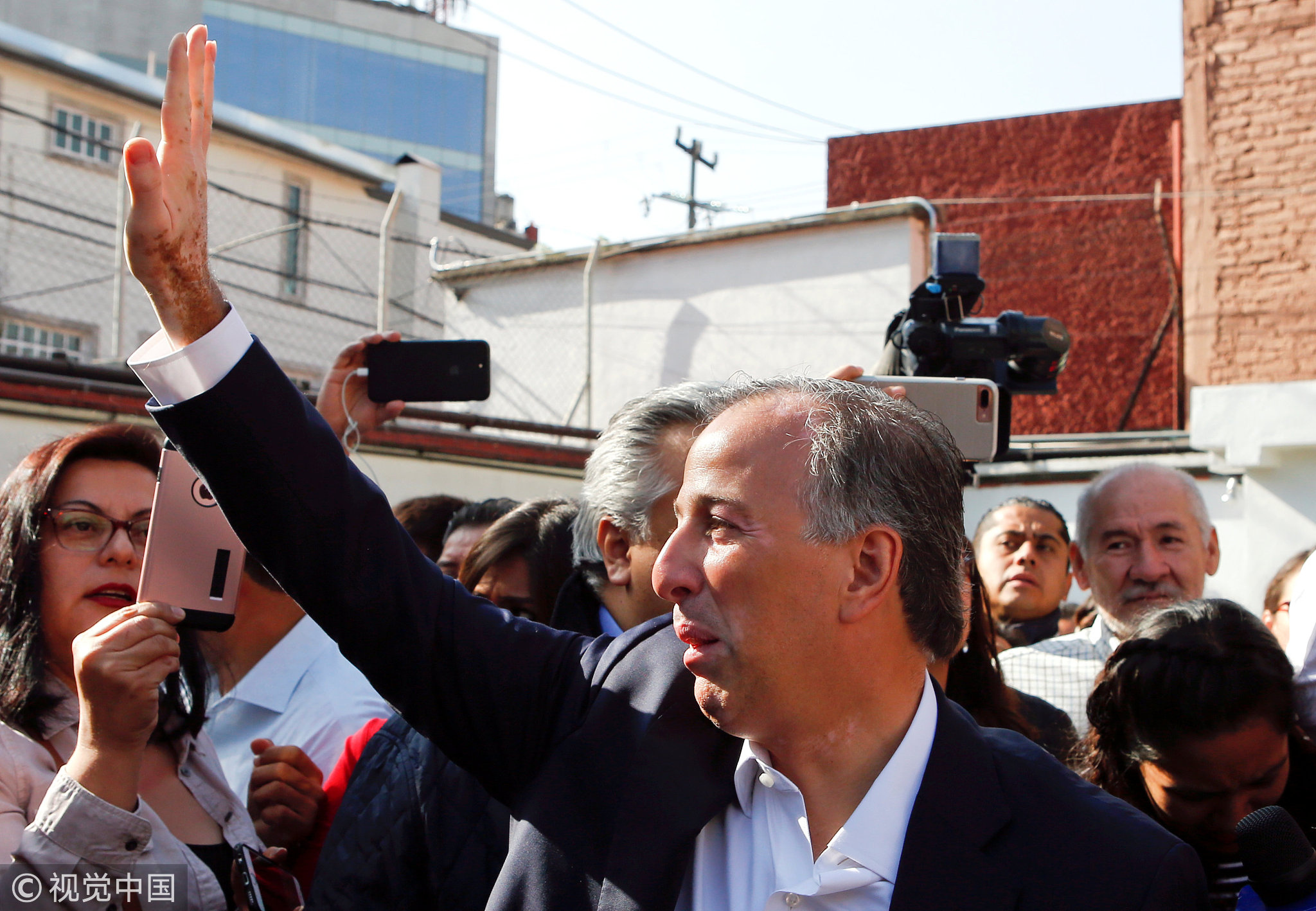
Presidential candidate Jose Antonio Meade greets supporters after casting his ballot at a polling station during the presidential election in Mexico City, Mexico, July 1, 2018. /VCG Photo
Presidential candidate Jose Antonio Meade greets supporters after casting his ballot at a polling station during the presidential election in Mexico City, Mexico, July 1, 2018. /VCG Photo
"It's a historic day, the people of Mexico will decide freely," said the candidate, also known as AMLO, who is competing for the third consecutive time in presidential elections.
The outgoing president, Enrique Pena Nieto, on Sunday said his government will respect the people's choice no matter what the outcome is.
"The president and his government will be highly respectful and will back the authorities that are elected on this election day," Pena Nieto told reporters after casting his vote at a local polling station in Mexico City.
In the central state of Queretaro, just north of Mexico City, presidential candidate Ricardo Anaya of the National Action Party (PAN) told the press, "We are going to win, I am convinced, it is going to be a historic day for our country."
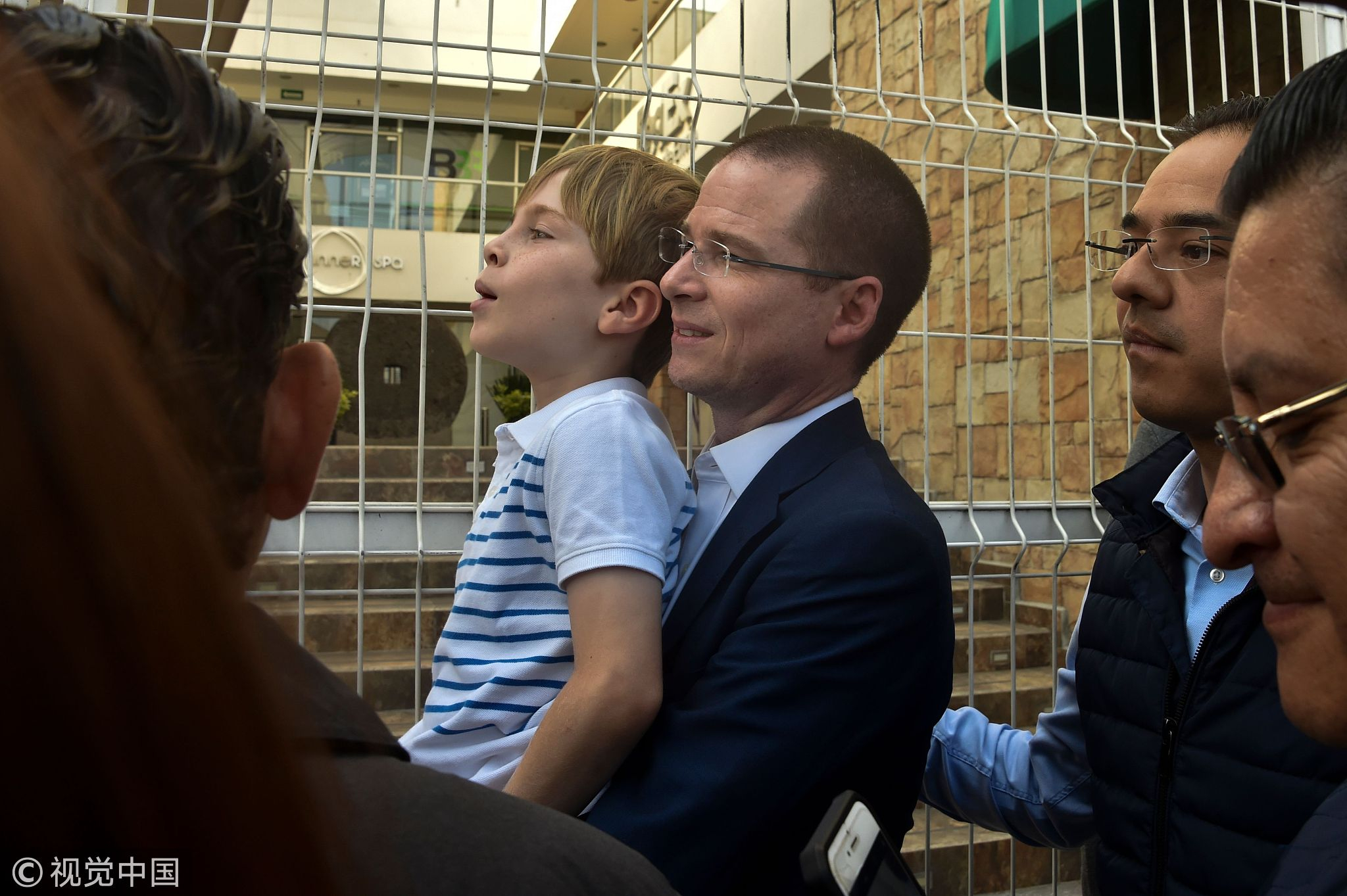
Mexico's presidential candidate Ricardo Anaya of the "Mexico al Frente" coalition party, arrives at the polling station during general elections, in Queretaro, Mexico, July 1, 2018. /VCG Photo
Mexico's presidential candidate Ricardo Anaya of the "Mexico al Frente" coalition party, arrives at the polling station during general elections, in Queretaro, Mexico, July 1, 2018. /VCG Photo
To bolster his chances of winning, Anaya formed an unlikely coalition with the left-leaning Party of the Democratic Revolution (PRD), a move that alienated factions within both the PAN and the PRD.
Jose Antonio Meade, the candidate from the ruling Institutional Revolutionary Party (PRI), who was never able to make it out of third place in the polls, nevertheless sounded confident, telling reporters, "I am absolutely sure that victory will be mine."
In fourth place in the polls was independent candidate and former Nuevo Leon state governor Jaime "El Bronco" Rodriguez.
Voices from US-Mexico border voters
At the San Ysidro international border in Tijuana, thousands of voters with dual nationality crossed into Mexico to cast their votes in the presidential race.
“I drove all the way from Los Angeles to vote,” said Jorge Parra, who got up at 6 am to make the long drive down to his home country. “I did it to make possible a good change for my people.”
“I just crossed the border from San Diego to Tijuana to vote,” said Gonzalo Cortes, who was voting just five blocks from the US border line.
Tijuana’s border with the US is the busiest international crossing in the western hemisphere and for many dual-nationality voters, the forced nature of the cross-border life is their primary reason to vote.
“The people from San Diego, they want to bring more work, more jobs, better pay, and a better salary, you know?” Gonzalo told CGTN. “If the people had better pay, they aren’t going to cross the border to the United States, they want to stay here, you know, because they want to feed their families.”
Yet in Tijuana, it isn’t just cross border voters who are having their say. Another group of Baja California residents is watching closely, as their state is where over 33 percent of America’s deportations are conducted.
Situated at the US-Mexico border, Tijuana is also home to a large number of US deportees. They are a community that counts themselves among Mexico's most marginalized, and for many of them, it will be their first time voting in an election.
“Right now, when they see our votes, they see our names and they look up who we are, and they can see, OK, this is a deportee vote,” said Luis Rivera, a deportee who says he wants to see his fellow deportees involved in the democratic process.
“We took the time to get up, think about our city where we live and try to make it better. That’s where they’re gonna see that we’re actually doing something about it. We’re not screaming, we’re not starting riots, all we’re doing is participating with them to make this vote go through.”
As Tijuana has its say in Mexico’s future, many of its voters will depend on how the country’s next president handles the worsening relationship with its northern neighbor.
First woman elected Mexico City mayor: exit polls
Mexico City has elected a woman mayor for the first time in history, according to exit polls. Local politician and scientist Claudia Sheinbaum, 56, won the election with between 47.5 and 55.5 percent of the vote, according to an estimate by polling firm Mitofsky.

A woman casts her ballot at a polling station during the presidential election in Ciudad Juarez, Mexico, July 1, 2018. /VCG Photo
A woman casts her ballot at a polling station during the presidential election in Ciudad Juarez, Mexico, July 1, 2018. /VCG Photo
A woman had previously served as mayor of the capital on an interim basis – Rosario Robles, from 1999 to 2000 – but Sheinbaum, who holds a doctorate in physics, is the first woman elected to the post.
Two Mexican political activists shot dead on voting day
Two Mexican political party members were shot dead Sunday as the country held elections.
Flora Resendiz Gonzalez, a member of the Workers' Party in the western state of Michoacan, died "after she was shot at 6:30 am (1130 GMT) while she was at home" in the town of Contepec, local law enforcement officials said.
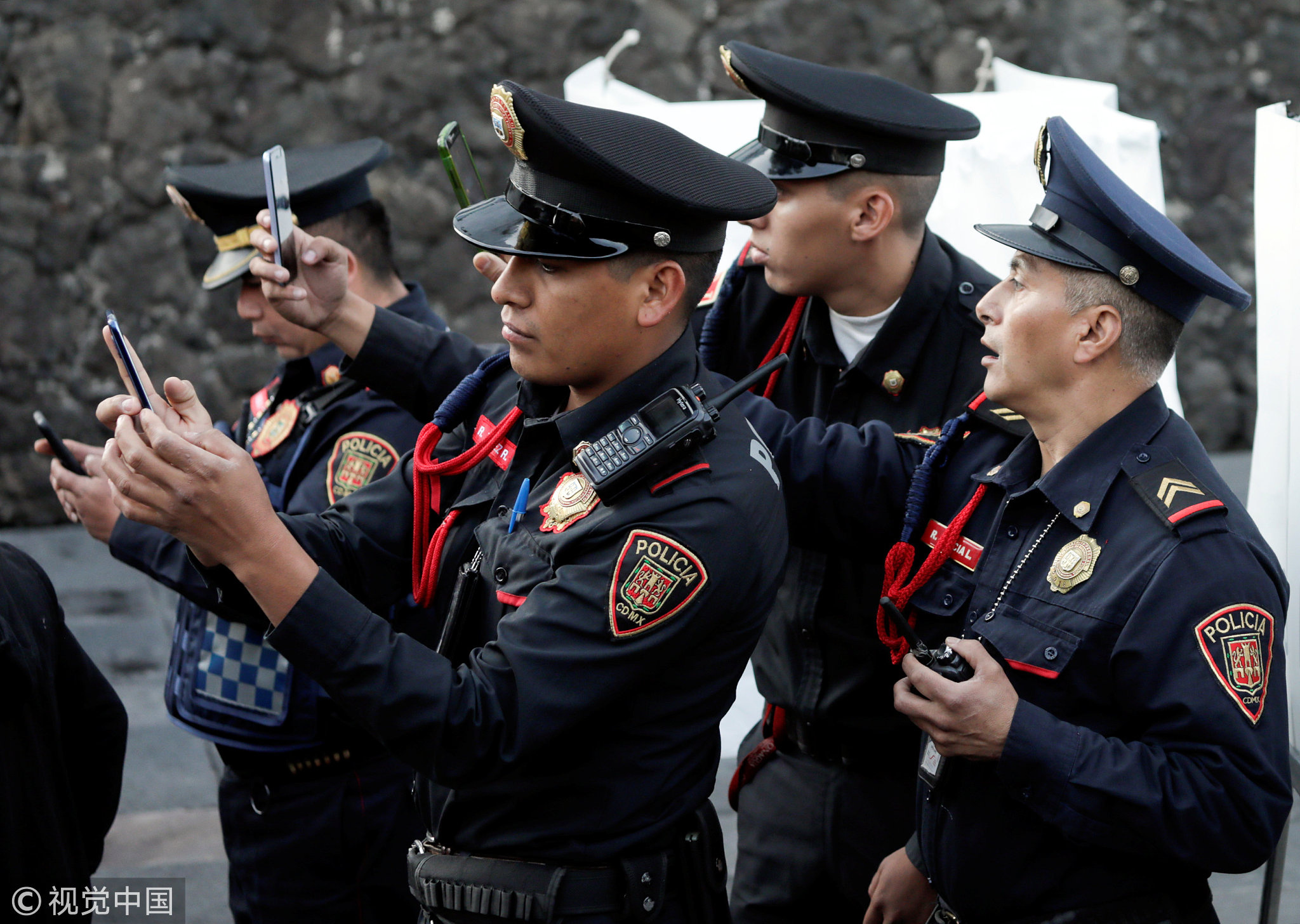
Police officers take pictures of presidential candidate Andres Manuel Lopez Obrador at a polling station during the presidential election in Mexico City, July 1, 2018. /VCG Photo
Police officers take pictures of presidential candidate Andres Manuel Lopez Obrador at a polling station during the presidential election in Mexico City, July 1, 2018. /VCG Photo
Later in the day, Fernando Herrera Silva, a member of the ruling Institutional Revolutionary Party (PRI), was gunned down in Acolihuia, in the central state of Puebla.
Read more:
"We demand the state guarantee the security of this electoral process," the PRI said in a statement.

A voter gets her finger inked after casting her vote during the presidential election in Nezahualcoyotl, on the outskirts of Mexico City, July 1, 2018. /VCG Photo
A voter gets her finger inked after casting her vote during the presidential election in Nezahualcoyotl, on the outskirts of Mexico City, July 1, 2018. /VCG Photo
Political murders have become almost a daily phenomenon in Mexico this election season, with at least 145 politicians killed since September, according to the consulting firm Etellekt. The victims included 48 candidates running for office – 28 of whom were killed during the primary campaigns and 20 during the general election campaign.
Most of the murders have been of local politicians, the most frequent targets for Mexico's powerful drug cartels.
(CGTN's Alasdair Baverstock also contributed to the story.)
Source(s): AFP
,Xinhua News Agency

